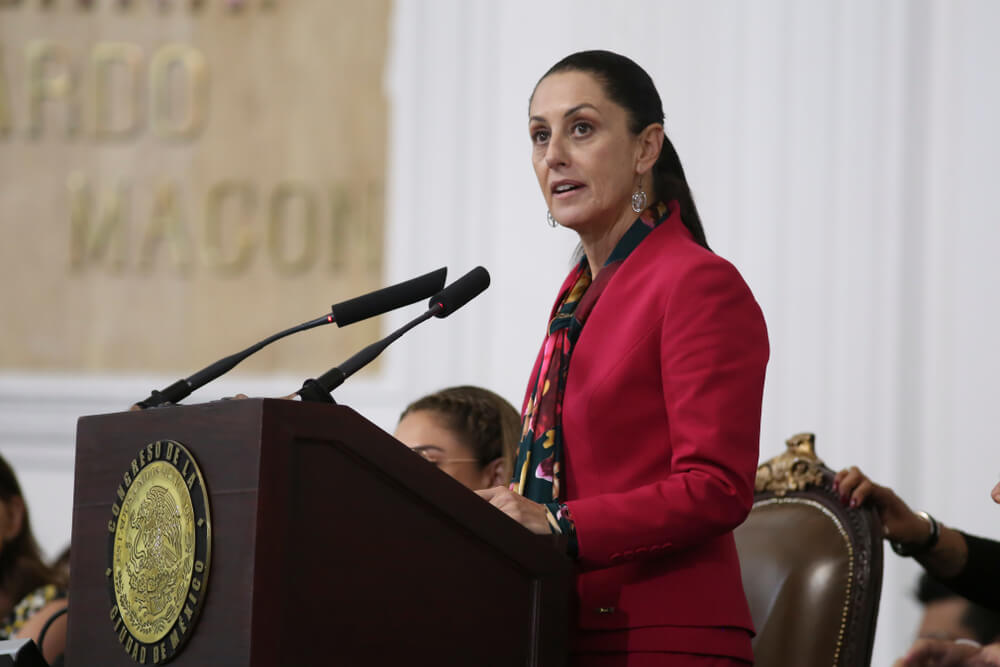In the forthcoming elections, Mexico has a rare opportunity to open a chapter of more decisive confrontation with widespread organised crime at all levels of government in the country.
On June 2, the country will hold the largest single-day elections in its history, electing more than 20,000 representatives at all levels of government, from local to federal parliament and state president.
The fight against the criminal cartels and ensuring security in the country are the biggest problems Mexicans expect politicians to solve, whether they are representatives in local governments, senators, parliamentarians, or the head of state.
But the armed cartels are also aware of the significance of the elections on June 2, and they are not sitting idly by.
Last year, up to 30 candidates for various government offices were murdered in Mexico, and most of the murders remain unsolved.
However, it is widely believed that criminal groups were behind these murders because they also have a clear political objective in the forthcoming elections.
The cartels simply want their own people, corrupt, intimidated, or both, among the thousands of new (or old) officials at all levels of government.
Their businesses depend heavily on whether they will have partners among mayors, city councils, and local police chiefs, particularly among the new local authorities across Mexico.
Bad track records
Politically motivated threats and even murders are nothing new in Mexico, but this year's elections have surpassed all previous ones, and the pressure from the cartels has been stronger than ever.
In addition to the murders of candidates, hundreds have dropped out of the race for the different electoral levels precisely because of the threats they do not want to face.
Some 350 candidates in the state of Zacatecas have given up their candidacies, and a 190 more in the state of Michoacán—two of the six Mexican states that account for almost half of all murders in the country.
The government of outgoing President Andrés Manuel López Obrador proudly stated that the number of murders declined by almost 11% in 2023 compared to 2022. But is it any consolation when, even with this significant drop, there were almost 30,000 murders in Mexico last year, an average of 80 per day?
President López Obrador's successor will start with a heavy burden on his back
At the end of his term, President López Obrador proudly stated that the number of murders had also declined during his six years in office by 20% compared to 2018, when he took office.
However, the fact that more than 170,000 people were killed in Mexico during this time is still devastating, leaving the new president with the difficult task of addressing a problem that voters consider to be an absolute national priority.
Their evaluation of President López Obrador's role in combating organised crime, considering his imminent departure, is unfavourable.
According to the survey, more than half of citizens (52%) believe that the popular AMLO did not lead the fight against crime well, and only a quarter (23%) praise this part of its work.
This means that President López Obrador's successor will start with a heavy burden on his back.
A clear victory for the left
The ruling left-wing National Regeneration Movement (MORENA), which nominated Claudia Sheinbaum, the former mayor of Mexico City and political "daughter" of the outgoing president, has by far the best chance of winning the position.
It is quite unlikely that Mrs Sheinbaum will lose her substantial advantage of over 20 points to primary candidate Xóchitl Gálvez in the remaining two weeks leading up to the election.
The ruling MORENA movement will retain its majority in the bicameral parliament
It is also almost certain that the ruling MORENA movement will retain its majority in the bicameral parliament. The only question is whether it will maintain its current two-thirds majority or if it needs to form an alliance with one of the smaller parties.
The likely future president has announced a strategy to combat organised crime and, at the same time, highlighted the successes of her predecessor and mentor in suppressing violence in the country.
Pressure from citizens and the USA
However, Mrs Sheinbaum and the outgoing AMLO president do not seem to share the widespread public outrage regarding the threat to public security. They maintain that the fight against organised crime should not overshadow other issues, primarily those concerning the left-wing government.
“In many places before security, people shout at me, ‘a hospital! a school!’ I’m not saying that security isn’t an issue on which we have to continue making progress, I don’t want to make light of the problem, but this idea that Mexico is afraid and doesn’t want to go out to the street, I don’t agree with that perception”, said Claudia Sheinbaum.
 This idea that Mexico is afraid and doesn’t want to go out to the street, I don’t agree with that perception - Claudia Sheinbaum
This idea that Mexico is afraid and doesn’t want to go out to the street, I don’t agree with that perception - Claudia Sheinbaum
Whether the new authorities in Mexico will take more decisive action against widespread organised crime will depend to some extent on how they respond to pressure from the US, where there are growing expectations for a more vigorous battle.
Mexico is the US's principal trading partner, supporting around 5 million US jobs.
But with the ongoing problem of illegal immigration from Mexico to the US, the criminal activities of Mexican cartels are a constant threat to mutual relations, particularly to the expansion of economic cooperation.
The elections on June 2 will bring a large number of new Mexican leaders to the stage while maintaining the present political course at the federal level.
However, the majority of the country's 100 million or so voters, as well as its most significant and powerful northern neighbour, will continue to put pressure on the government to take a harsher stance against criminal cartels.